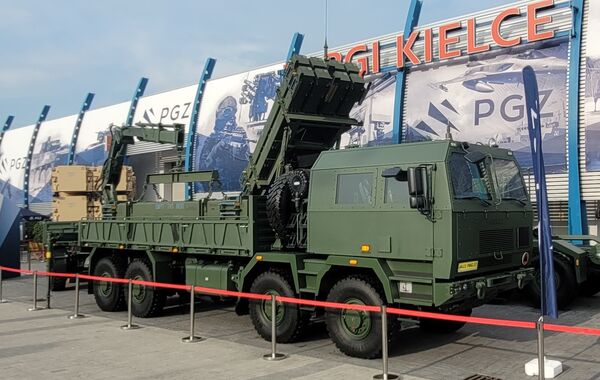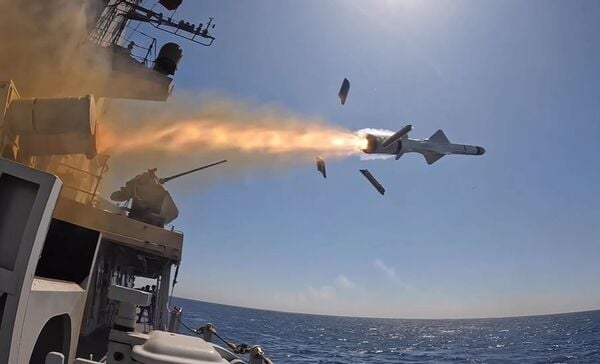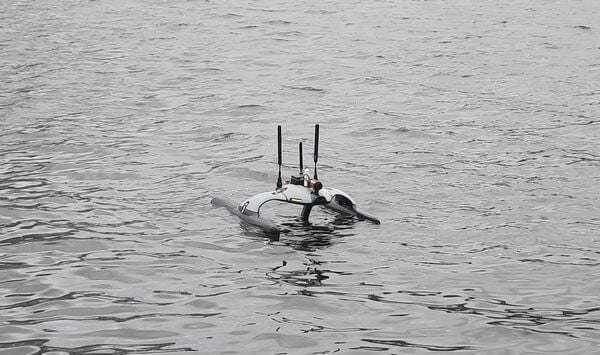- About
- Intara
- Capabilities
- Advisory
- Resources
- News
- Store
Delivery of first Wisla MRAD system to Polish Armed Forces completed
08 June 2023
by Jakub Link-Lenczowski


The first Polish-made Patriot launcher and resupply vehicle delivered by Huta Stalowa Wola was displayed at International Defence Industry Exhibition MSPO 2021. (Janes/Jakub Link-Lenczowski)
Delivery of the first battery of the Wisła medium-range air-defence (MRAD) system to the Polish Armed Forces has been completed, Polish Armaments Agency (AA) spokesperson Kacper Bakuła told Janes on 2 June.
The programme, which will provide upper-tier air defence, is divided into two phases. Under phase one the first of the two purchased Patriot Configuration 3+ batteries is being established. Referring to the second battery, Bakuła said, “Further deliveries of the key battery components are planned to be completed by the end of September.”
Indonesia to restart procurement process for more Exocet missiles
18 March 2024
by Ridzwan Rahmat


An Exocet MM40 Block 3 missile being launched from an Indonesian Navy Bung Tomo-class frigate. The country's latest attempt to replenish its stock of Exocet missiles has been delayed by non-conformity issues. (Indonesian Navy Armada I)
Indonesia will have to restart a process to replenish the country's stock of MBDA Exocet MM40 Block 3 anti-ship missiles after an earlier attempt failed because of licensing non-conformity issues.
A 24 February letter from the Indonesian Ministry of Finance's (MoF's) Directorate General of Budget Financing and Risk Management sent to various departments at the country's Ministry of Defense (MoD) confirmed that a previously granted permission to procure the missiles with foreign loans has now lapsed.
A copy of the letter was provided to Janes on 18 March by sources close to the procurement process.
In the letter, the MoF advised the respective MoD departments to resubmit a request for a total of three programmes for which the permission to take on foreign loans has lapsed, including the Exocet missile procurement.
EvoLogics preparing further deliveries of Sonobot USVs to Ukrainian armed forces
18 March 2024
by Neil Dee


EvoLogics Sonobot 5 USV being demonstrated at Oceanology International 2024 in London on 13 March. (Janes/Neil Dee)
German company EvoLogics is planning to deliver a further batch of Sonobot unmanned surface vehicles (USVs) to the Ukrainian armed forces. EvoLogics CEO Fabian Bannasch told Janes at Oceanology International 2024, held in London on 12–14 March, that his company is “currently preparing a fourth configuration of Sonobot with enhanced underwater data networking and positioning capabilities in order to guide and support complex underwater missions with dive teams, and AUVs [autonomous underwater vehicles] where the Sonobot will be the gateway buoy at the surface” for the Ukrainian armed forces. Sonobots are a family of small USVs of about 1.3 m in length that can be folded and transported by a single person.
Pentagon budget 2025: USAF funds HACM but not ARRW development
13 March 2024
by Zach Rosenberg


A B-52H Stratofortress assigned to the 419th Flight Test Squadron takes off from Edwards Air Force Base, California, in 2020. The aircraft conducted a captive-carry flight test of the AGM-183A ARRW, a programme that is zeroed out in the FY 2025 budget. (US Air Force/Matt Williams)
The US Air Force (USAF) requested just shy of USD517 million to continue development of Raytheon's Hypersonic Attack Cruise Missile (HACM) hypersonic air-breathing missile in its fiscal year (FY) 2025 presidential budget request, but zeroed out the procurement of the Lockheed Martin AGM-183 Air-launched Rapid Response Weapon (ARRW) hypersonic boost-glide weapon.
The FY 2025 funding request is a change from that of FY 2024, which requested USD350 million for HACM and USD150 million for ARRW.
ARRW was for years considered the frontrunner in the US's race to field an air-launched hypersonic weapon, but the system has seen mixed results in all-up round flight-testing, notching both successes and failures. The final all-up round test is thought to be upcoming, following the USAF's publication of a photograph depicting the munition in Guam, hanging from the wing of its B-52 launch platform.
Delivery of the first battery of the Wisła medium-range air-defence (MRAD) system to the Polish Arme...
Latest Podcasts
Iran Israel analysis
In this podcast Janes analysts discuss the Iranian attacks on Israel on the 14 April. They highlight the military systems used by Iran and the performance and impact of these on Israel. They also discuss the implications of this attack goi...
Listen nowJanes Case Studies
Using Janes Intara to build a common intelligence picture: Russian build up on the Ukrainian border
View Case StudyNews Categories
 Weapons Details
Weapons Details